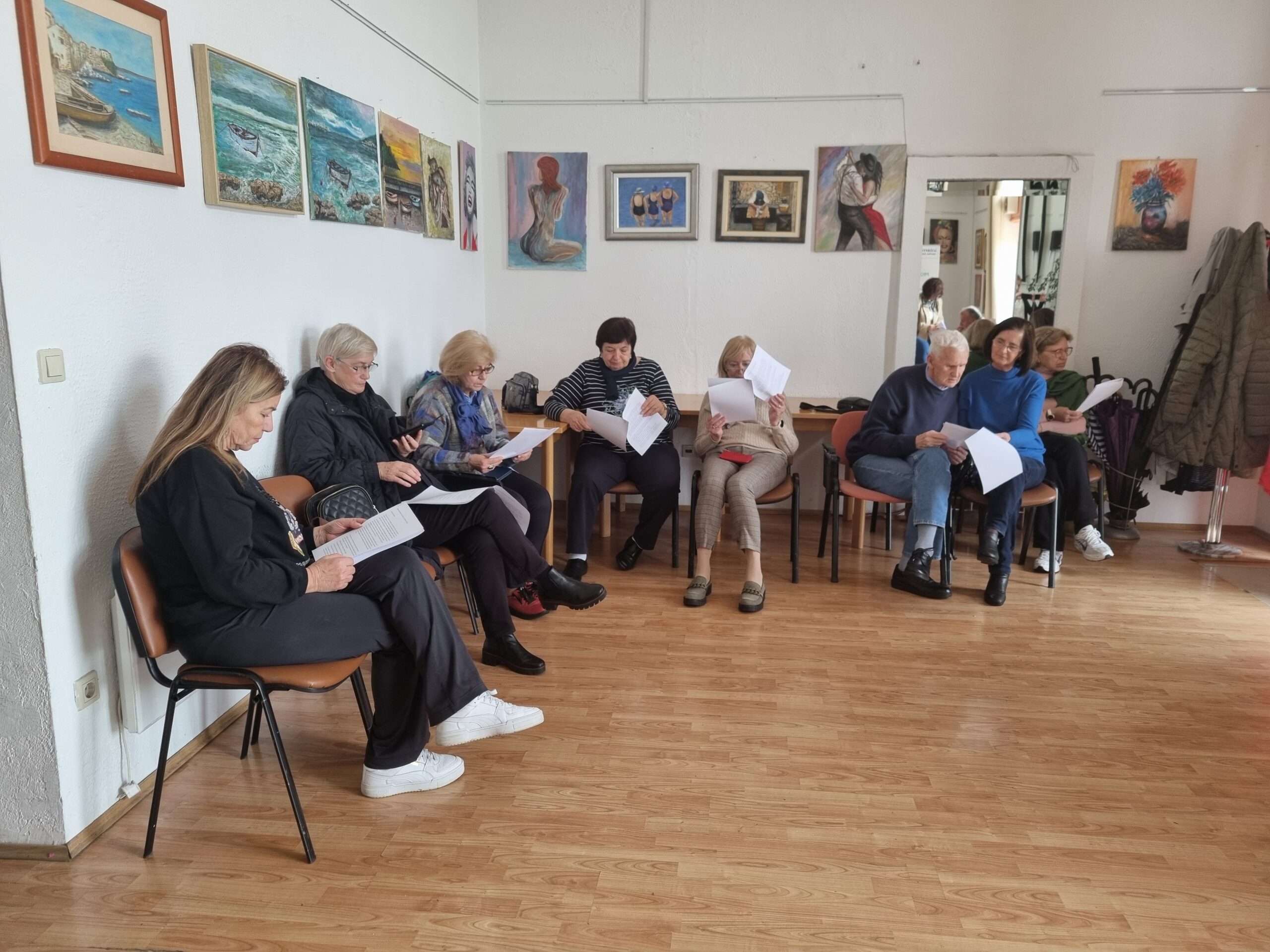The PROCAREFUL model envisages sociality as a key factor for the well-being of the ageing person. It is no coincidence that the personalised training pathway accessible via the PROCAREFUL app includes a series of social challenges. In the PROCAREFUL project, we have decided to call them personal growth challenges, because we firmly believe that adopting healthy lifestyles and a proactive approach to increasing and maintaining our well-being also involves working on our social connections. And this is why we decided to dedicate to this important aspect one of the workshops planned among the activities taking place outside the platform.
Thanks to the solid experience and expertise of the Slovenian partner IAT, which provided some theoretical references and a set of operational guidelines in the form of working material, the project partners were able to conduct in each pilot site a workshop entitled “Good Communication is Key to Good Relationships”. The aim of the workshop was to encourage reflection on an element we often take very much for granted, namely the way we communicate in our daily lives with family members, friends, and strangers, highlighting how good communication leads to more serene and fulfilling relationships.
The working material provided contained highly relevant knowledge on the types of communication we engage in on a daily basis, such as “chatting”, “functional conversation” and “personal conversation”. Furthermore, it guided through some apparently basic but really meaningful rules of communication, which are essential to create a harmonious, respectful and inclusive exchange with others, regardless of who they are.
Through biblioeducation, the workshop was able to raise participants’ awareness and increase their knowledge on this crucial topic. Moreover, this collective learning moment was very useful for reflecting together on what was read, sharing views and opinions, but also experiences of recent and past good or “not so good” communication episodes. Afterward, participants were divided into pairs and invited to challenge themselves in applying what they learned through a simple but potent exercise: each person was asked to choose a significant photo or image from their mobile phone and tell their pairs the reasons for their choice and the story behind that picture. An only seemingly trivial exercise, yet capable of bringing into play all the rules participants had just learned, from actively listening to the other to thanking him/her for their words.
The enjoyment of older adults who took part in the event was very high in all pilots. As happened on the occasion of the previous workshops, the opportunity to open their eyes, discover and learn something new, get useful tips to apply in their life and share experiences and reflections with others was highly appreciated. We now look forward to the last workshop, scheduled for May, which will focus on cognitive training and conclude our path in the in-presence activities.
